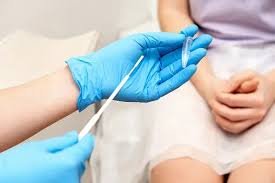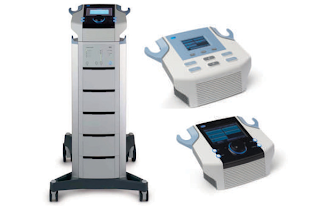6 Strategies for Managing STD Symptoms
Maintaining health and well-being requires managing the symptoms of sexually transmitted infections (STDs). Appropriate tactics can guarantee successful treatment of these problems, reduce suffering, and stop complications. Those who are impacted by STDs can greatly enhance their quality of life by comprehending and putting these strategies into practice. These are six practical methods for handling the symptoms of STDs.
1. Seek Medical Treatment
It’s essential to get medical attention if you want complete care and to manage your STD symptoms. Seeking a medical professional for STD testing in Chicago is the first step to treating your symptoms. Which medications your doctor prescribes will depend on the type and severity of the infection. If you want to get rid of the illness and stop it from coming back, you must stick to the recommended treatment plan. Furthermore, trustworthy methods of receiving a precise diagnosis and specialized therapy. To keep an eye on development, confirm that the medication is working, and handle any possible issues, routine follow-up consultations can also be required. Your health can be efficiently managed and the likelihood of developing new problems decreased by being proactive and following your treatment plan.
2. Maintain Proper Hygiene
To control STD symptoms and stop more complications, maintaining good hygiene is crucial. Use lukewarm water and mild, non-irritating soap to wash the afflicted areas to prevent aggravating symptoms gently. Steer clear of harsh chemicals, overpowering perfumes, and soaps that have additional dyes added since they may aggravate existing irritations. Itching and other discomfort-causing sensations can be reduced by keeping the affected region dry and clean. Moreover, to lessen friction and encourage healing, choose airy, loose apparel composed of natural fabrics. Not only may good cleanliness practices reduce symptoms, but they also improve general comfort and stop infections from spreading. Smoothie CCL
3. Use Over-the-Counter Remedies
When it comes to treating some STD symptoms, such as itching or discomfort, over-the-counter medications can provide symptomatic relief. Topical ointments or lotions designed especially for genital discomfort can help relieve symptoms and calm afflicted areas. To make sure the products you choose are suitable for your situation, use the ones that a pharmacist or healthcare professional has suggested. While these treatments may offer short-term respite, they should only be taken in addition to medical advice from a qualified practitioner. It’s critical to speak with a medical expert to address the underlying infection and obtain a thorough treatment plan customized to your requirements.
4. Practice Safe Sex
Managing and stopping the transmission of sexually transmitted infections requires safe sex practices. When barrier techniques are used during sexual activity, such as condoms, the risk of infection transmission or acquisition is greatly decreased. Even without symptoms, using condoms helps prevent problems and possible outbreaks. For everyone’s health and safety, it is also crucial to keep lines of communication open regarding recent testing results and STD status with sexual partners. In order to improve sexual health and lower the spread of STDs, it is important to conduct regular testing and have open and honest conversations to make sure that everyone is aware of their health status and taking the necessary precautions. Oridzin
5. Monitor and Manage Symptoms
Effective STD care requires consistent symptom management and monitoring. Any changes in symptoms, such as worsening pain, the appearance of new rashes, or other indications of an infection, should be carefully documented. This proactive strategy makes it possible to intervene promptly and modify treatment regimens as needed. Any changes should be promptly addressed and reported to a healthcare physician to minimize the chance of problems and stop the disease from worsening. Regular monitoring guarantees that any new problems are promptly handled, which promotes long-term health and well-being in addition to helping to manage present symptoms.
6. Seek Support and Education
Seeking information and assistance regarding sexually transmitted diseases is essential for holistic care and psychological health. Participating in educational programs, counseling services, or support groups can provide insightful information and emotional support to help people deal with the challenges of living with a sexually transmitted disease. People can be more equipped to make decisions and make proactive efforts to maintain their health if they have a broader grasp of the illness, available treatment options, and preventive measures. Support groups can also offer motivation and useful guidance, which makes it simpler to manage the psychological and emotional difficulties brought on by STDs. By being informed and involved, people can enhance their overall quality of life and manage their illnesses more skillfully.
Conclusion
Proactive monitoring, safe practices, good hygiene, and medical therapy are all necessary for the effective management of STD symptoms. By using these techniques, people can reduce symptoms, avoid problems, and keep their general health.






